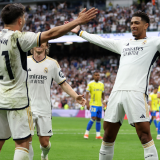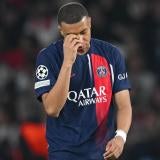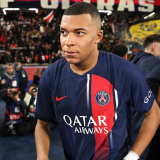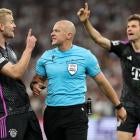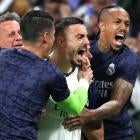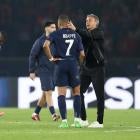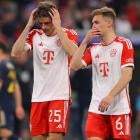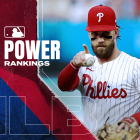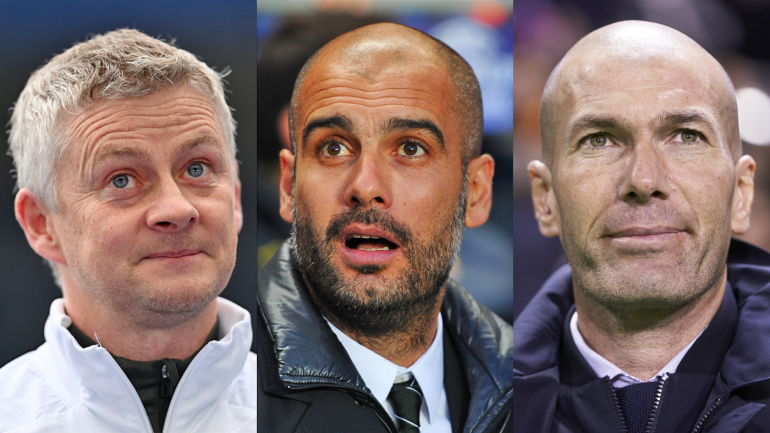
It is the default response of any besieged board: Get us someone who knows the club inside out. Sometimes it works, but as Ronald Koeman can attest, simply having experience of life at the top tier of football does not necessarily prepare you for managing in the dressing room where you were once a player.
It may be that Xavi is also about to find out what life is like as a legendary former player returning to his longtime club. Who should he aim to replicate if he does get the Barcelona job ... and whose tenure stands as a warning to him?
Craving even more coverage of the world's game? Listen below and follow ¡Qué Golazo! A Daily CBS Soccer Podcast where we take you beyond the pitch and around the globe for commentary, previews, recaps and more.
Ten of the best
1. Pep Guardiola (Barcelona)
He might well argue that there are others who deserve to rank more highly on this, not least the man he is just ahead of, but his achievements between 2008 and 2012 as the manager of perhaps the greatest club side in history merit his spot at the top of the game. Having a clutch of the greatest players Barcelona ever produced certainly helped ,but not everyone found it so easy to lead Lionel Messi, Xavi, Andres Iniesta and company to such sustained success, including the treble in his first season and a further Champions League title two years later.
It was not just that Guardiola had such success with Barcelona. The style he implemented is perhaps the defining tactical approach of the last 15 years in the sport (Jurgen Klopp and Ralf Ragnick's acolytes may argue otherwise). Equally significantly for this list, ever since Barca plucked their head coach out of the B team and began a decade of sustained success, every club has been looking for their own Guardiola.
2. Johan Cruyff (Ajax and Barcelona)
One of the greatest players in the game's history has a strong claim to be in its managerial pantheon too. With Ajax, Cruyff won a European Cup Winners' Cup in 1987, setting the groundwork for the system that would take them to Champions League glory eight years later.
Then at Barcelona, he built the club's modern identity. The Dream Team was everything subsequent coaches aspired to, not least because it brought with it the Camp Nou's first -ever European Cup. That side was the intoxicating mix of top-tier international imports (Hristo Stoichkov, Michael Laudrup, Koeman) and homegrown talent (Albert Ferrer, Guardiola) that clubs aspire to.
Craving even more coverage of the world's game? Listen below and follow ¡Qué Golazo! A Daily CBS Soccer Podcast where we take you beyond the pitch and around the globe for commentary, previews, recaps and more.
3. Zinedine Zidane (Real Madrid)
Clubs did not really retain the Champions League before ZIdane took charge at Real Madrid. When his holders reached the 2017 final, they were bidding to do what no side had managed in 27 years and retain the trophy. They barely wobbled for a moment in a 3-1 win over Juventus ... then they did it all over again the next year.
Zidane's Madrid didn't revolutionize football. There were not necessarily any tactical quirks that he implemented and others followed. In many ways, his success came from an ability to manage egos and a respect that is a given for one of the greatest footballers of his generation. Most of all, they did the most Real Madrid of things: Win an awful lot of big trophies.
4. Bob Paisley (Liverpool)
A title winner as a player and as Bill Shankly's assistant, Paisley masterminded Liverpool through the greatest spell of sustained success in their history between 1974 and 1983. In that time, he won six English First Divisions, three European Cups and a UEFA Cup. At a rate of 2.2 trophies a season, only Guardiola can lay claim to such sustained glory at any one club; not a bad return for a man who had to be coaxed into the top job.
5. Carlo Ancelotti (AC Milan)
Perhaps the archetypal big-club manager, Ancelotti earned his reputation with an outstanding spell at the San Siro. He shrugged off early allegations of negative tactics by club owner Silvio Berlusconi to produce one of the dominant teams of the early 2000s, converting Andrea Pirlo into the heartbeat of his side at the base of midfield with the devastating frontline of Andriy Shevchenko and Filipo Inzaghi leading the way. That side became the dominant force in the Champions League between 2004 and 2007, winning it twice and reaching a further final.
6. Diego Simeone (Atletico Madrid)
It says everything for what Simeone has achieved at the club that Atletico are no longer a byword for near misses and disappointment, perhaps as they were during his spell there as a player, one where we are being exceedingly generous with our definition of legend to fit him in. It is worth doing, however, because what the Argentine has achieved over a decade has certainly made him an icon now.
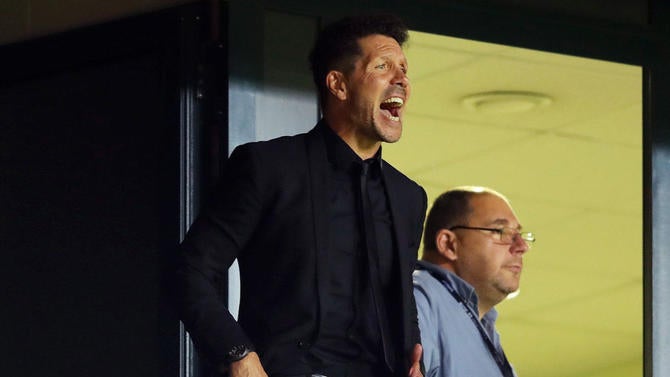
The duopoly of Real Madrid and Barcelona may not have been entirely broken, but it is not unreasonable to expand its membership a tad to include Atletico; certainly, there is a gulf between the 2014 and 2021 Spanish champions and the rest of La Liga. The playing staff may have changed but they are always a team in Simeone's image: Strong, technically excellent, diligent and hell to play against.
7. Antonio Conte (Juventus)
Another who can be said to have brought a new culture to his club, Juventus appointed Conte in 2011 to help them rediscover the ferocious winning mentality of the sides he played in before the Calciopoli referee match-fixing scandal brought them to their knees. It worked to a tee, three titles in three years and the formation of a team that a decade on still bears the hallmarks of Conte's intensity and aggression.
8. George Graham (Arsenal)
An elegant, scoring midfielder nicknamed 'Stroller' returned to Arsenal to turn them into one of the most ferocious defensive outfits the English game has ever seen. He re-established them as a force in the First Division when they were at risk of drifting to irrelevance in the mid-1980s, winning the most dramatic of league titles at Anfield in 1989 and repeating the success two years later with just one defeat to their name. Since Graham took the helm, Arsenal have always found themselves among England's preeminent clubs.
9. Hansi Flick (Bayern Munich)
Bayern's track record of excellence and their ability to hoard the greatest German talent means we are once more stretching the boundaries of legend to celebrate a manager whose feats in the dugout certainly deserve note. Flick was an important member of the squad that won four Bundesligas between 1986 and 1990, reaching the European Cup final in 1987. He went one better as a coach and his season and a half with Bayern helped re-establish themselves at the very top of the continent's footballing pile, culminating in their supreme run to the Champions League title in 2020.
10. Roberto Martinez (Swansea City and Wigan Athletic)
A fixture in the English lower leagues in the mid-1990s and early 2000s, Martinez was the star of the Wigan side that escaped Division Three in 1997, winning the Football League Trophy two years later. His managerial career began by guiding Swansea into the Championship, setting the playing template that would make them so beloved of English football when they soon arrived in the Premier League.
Welsh supporters may not have forgiven him for moving to Lancashire, but at Wigan, he kept the wolf of relegation at the door for most of his reign. Though he could not keep them up any longer in 2013, he did at least depart on the most remarkable of highs, beating Manchester City in the FA Cup final, their first and so far only top-tier trophy.
Five of the rest
11. Frank Lampard (Chelsea)
Perhaps Chelsea's greatest-ever player, his first season as their manager was a relative success as he ushered them through a transfer embargo, blooding a host of young players (some of whom would form the core of Thomas Tuchel's European champions a few months later) while securing Champions League qualification. Ultimately, he never quite laid down a convincing tactical blueprint and struggled to integrate the numerous top-tier signings he was furnished with the following year, costing him his job.
12. Andrea Pirlo (Juventus)
Having intimated previously that he did not particularly fancy management as a future career, Pirlo committed a radical volte-face that would culminate in him being appointed Juventus manager nine days after he had been handed the job at their Under-23s. Handed a job that was getting progressively harder as players aged out of their primes, there was cruel irony in the man who had propelled Conte's side back to the top of Italian football being the one who shepherded them away from the Serie A summit.
13. Ole Gunnar Solskjaer (Manchester United)
The hero of Camp Nou, 1999, was supposed to be a safe pair of hands to sift through the rubble of post-Jose Mourinho United. Then the results started flowing, the pundits got overly excited and here we are three trophyless years later. That is perhaps the harshest of possible assessments for Solskjaer's reign, one in which things have stabilized at Old Trafford, albeit at a level slightly below that which others might have reached.
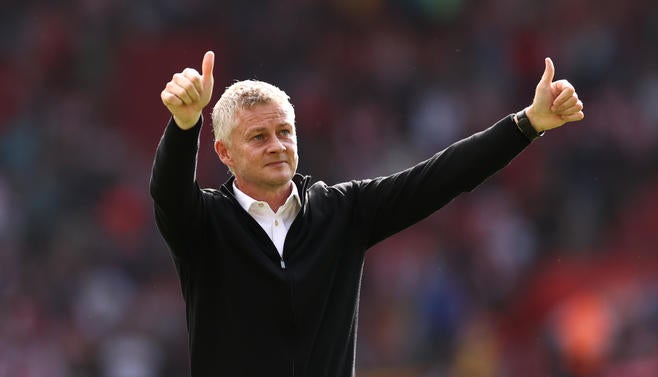
14. Thierry Henry (Monaco)
Appointed to a club in crisis, Henry aspired to greatness with a Monaco squad that perhaps could not reach it. He seemed to have particular issues in the dressing room, trying everything he could to provoke a reaction out of an ordinary squad, whilst the deficiencies of the players asked a great deal of him as a tactician. In short, he perhaps picked the wrong environment in which to learn on the job.
15. Diego Maradona (Argentina)
The Golden Boy's near two-year reign in the Argentina dugout was nothing if not dramatic. The highs were blistering (big wins over South Korea and Mexico at the World Cup) but the depths he plumbed were some of the deepest the national side had reached, including a 6-1 defeat to Bolivia. His final game in charge, a 4-0 loss to Germany in the quarterfinals of the 2010 World Cup, rather exposed Maradona's deficiencies as a manager. His team was chaotic at set pieces while in attack and defense it seemed to lack any real strategy.







